Rogers Stirk Harbour + Partners has unveiled its “Skyfarm” concept, which is intended to combat global food shortages.
The bamboo-lined vertical “farm”, which would be located in urban areas where there is insufficient land or poor quality soil, was created as a research project for the 2015 Milan Expo.
By the year 2050, nearly 80% of the earth’s population will reside in urban centres. Over the same period of time, the earth’s population is expected to grow by an additional 3 billion people– Rogers Stirk Harbour + Partners
The multi-storey structure has a rigid circular frame to maximise sun exposure and the towers support several layers of agricultural cultivation, as well as an aquaponics system. This enables the growth of crops and fish together in a re-circulating process, meaning nutrients from fish waste feeds plants that in turn provide filters for the fish.
At ground level there a market or restaurant to encourage the public to visit the farm and an education space or social hub where all the growing parts of the tower are visible.
Above this is a large transparent tank where freshwater fish are farmed. In the middle of the structure, plants are grown in water rather than soil. An “aeroponic” system sits nearer the top where plants are grown in a misty environment using minimal water and no soil.
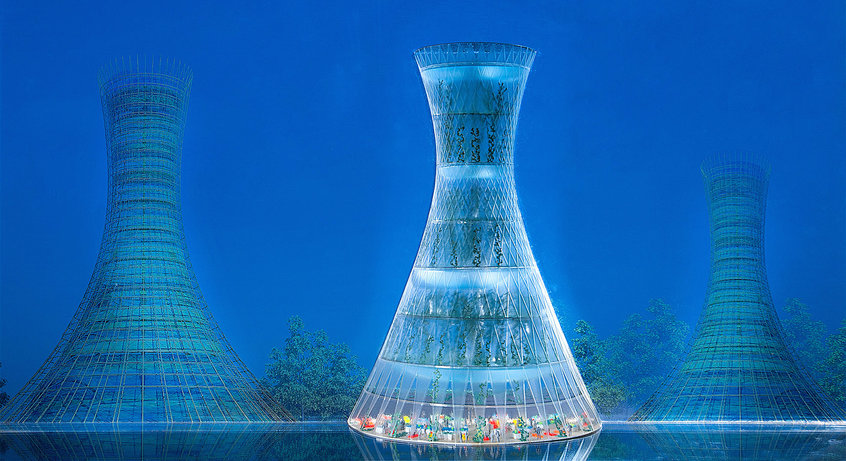
The very top of the tower houses water tanks and wind turbines.
The practice says that, should the tower ever be built, it could be “easily scaled” and a 10m high version could be constructed in a school, or an 80m one built in a larger urban area.
It could also be adapted to warmer or colder climates.
The upfront costs of Skyfarm are higher than standard industrial agriculture, but the structure allows year round produce without air-freighting produce from other countries.
Rogers Stirk Harbour + Partners says: “By the year 2050, nearly 80% of the earth’s population will reside in urban centres.
“Over the same period of time, the earth’s population is expected to grow by an additional 3 billion people.
“If we continue to use traditional farming practices, it is believed that an area of land larger than Brazil will be needed to feed these additional people.”
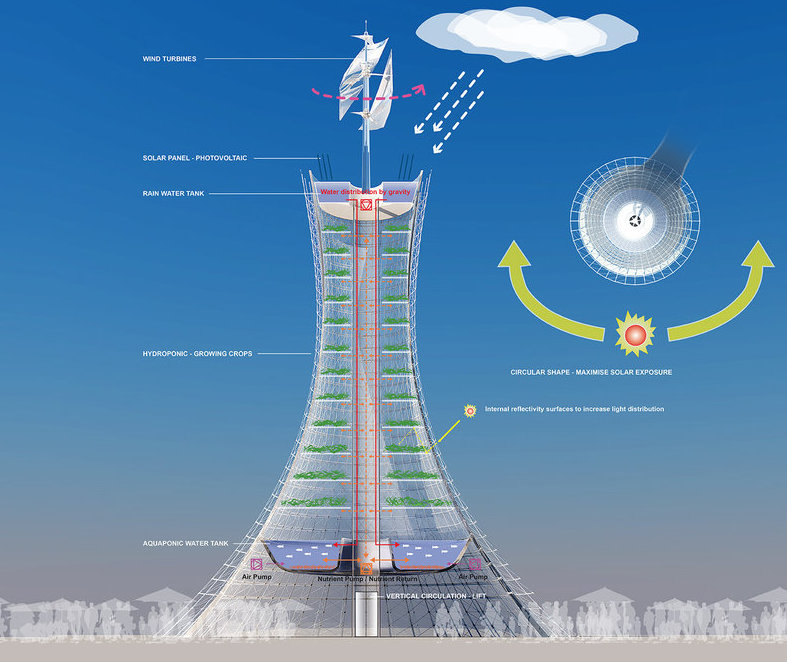
The project has recently won the Sustainability Prize at The Architectural Review MIPIM Future Projects Awards 2016.
It has previously won a Future Projects award at the 2014 World Architecture Festival.
Vertical farms have been planned in Seoul, Singapore and New Jersey.
Images via Rogers Stirk Harbour + Partners
Comments
Comments are closed.





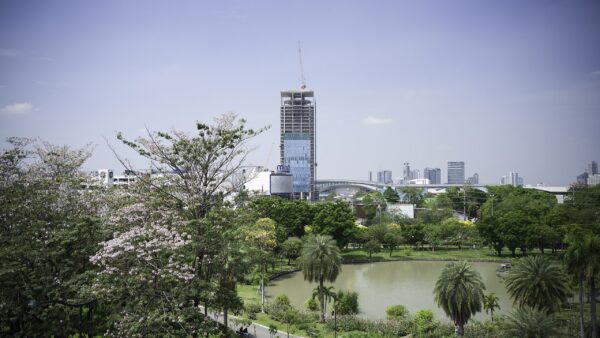
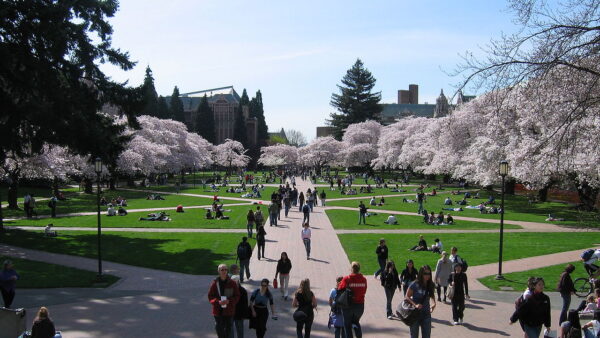
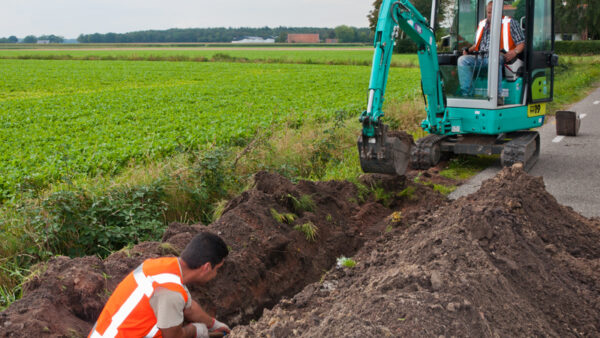
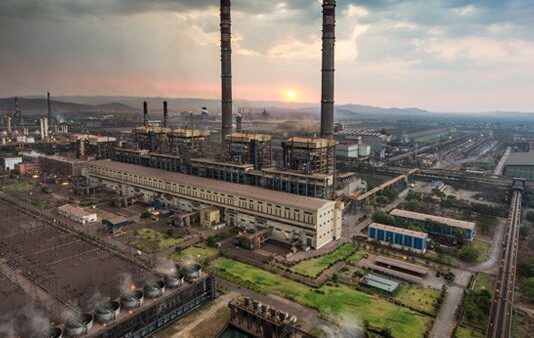
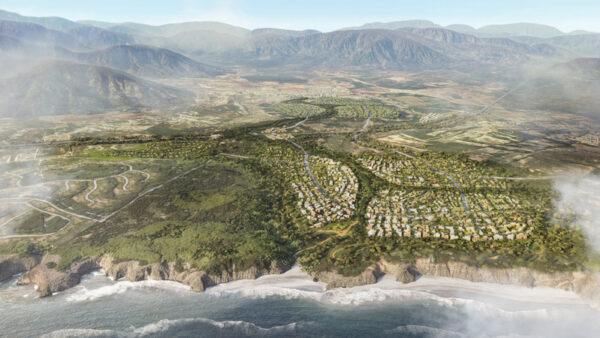
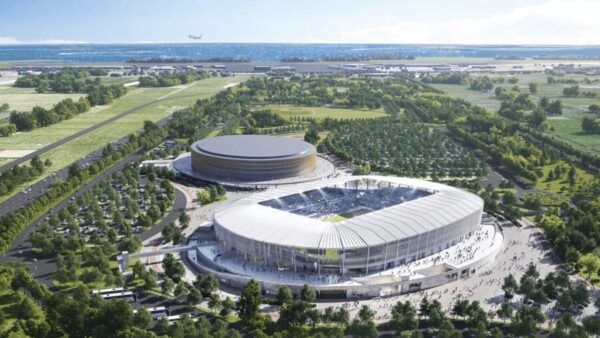
Absolutely brilliant
This is incredible! Any word on when construction will start?